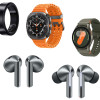The New Mile-High Club
Verizon's Airfone - the seatback phone system that Americans are most familiar with - currently works by transmitting between the plane and a network of towers on the ground. Verizon expects to expand the service from voice and dial-up data to broadband data this year. Since Wi-Fi use is still not approved for domestic carriers, users will have to connect via an ethernet or USB cable to a seatback jack. Verizon also expects to offer access to voice over IP (VoIP) phone services as part of this upgrade, however no plans have been announced to extend Airfone to relay mobile phone calls.
Boeing's Connexion system is the first broadband data system installed in planes. It is also the first system that works using a wireless protocol - users connect to the internet over a Wi-Fi base station in the plane in order to get on the 'net. The base station then relays internet traffic from the plane to various satellite networks. Connexion does not support mobile phones, however it does allow calls to be made over VoIP networks.
Although the FAA still considers PEDs a possible threat, it granted Boeing a certification allowing the use of Wi-Fi on planes with Connexion installed. In order to receive this, Boeing modified a 737 for testing and showed the FAA that Connexion did not interfere with the plane's avionic or structural integrity. Other countries' regulatory agencies, including Germany and the UK, have also approved Connexion.
Connexion is currently available on select routes of Lufthansa, SAS, ANA and Japan Airlines. It is also being deployed on El Al, China Airlines and Korean Air.


 Galaxy Ring Joins Samsung's New Wearable Lineup
Galaxy Ring Joins Samsung's New Wearable Lineup
 Hands On with the New Moto Edge
Hands On with the New Moto Edge
 iOS 17 Brings Comprehensive Protection Against Unwanted Nude Images
iOS 17 Brings Comprehensive Protection Against Unwanted Nude Images
 Boost Merges Brands
Boost Merges Brands
 Samsung Upgrades its Health App with Medical Records, Nutrition-by-Barcode
Samsung Upgrades its Health App with Medical Records, Nutrition-by-Barcode







